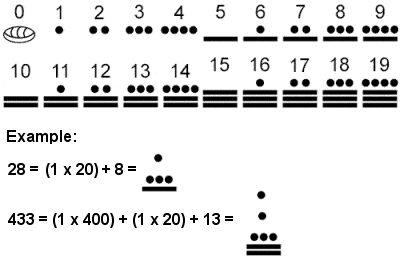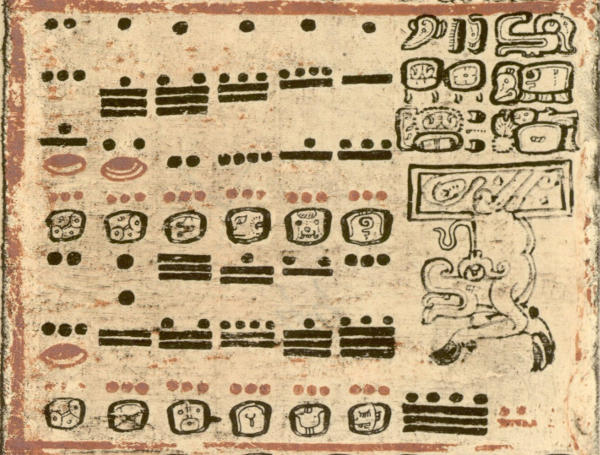The International Day of Mathematics (IDM) is a worldwide celebration. Each year on March 14 all countries will be invited to participate through activities for both students and the general public in schools, museums, libraries and other spaces.
March 14 is already celebrated in many countries as Pi Day because that date is written as 3/14 in some countries and the mathematical constant Pi is approximately 3.1416.
The International Day of Mathematics is a project led by the International Mathematical Union with the support of numerous international and regional organizations.
How did the Maya contribute to the field of mathematics?
The Mayans established a base-20 number system. Not only was this one of the most extensive systems used at the time, the Mayans introduced the concept of zero to the world. Numbers were recognized by symbols. For instance, the number one would be recognized with one dot, and five with one line.
As we all know, the Maya were a group of Meso-American people that rose to power developing an empire around 1800 BCE. They settled around the Yucatan Peninsula and were known for their vast contributions and accomplishment.
Some of the mathematical contributions of the Mayan civilization include their calendar system and astronomy, each of which was influenced by their advanced calendar.

Two thousand years ago, the ancient Maya developed one of the most advanced civilizations in the Americas. They developed a written language of hieroglyphs and invented the mathematical concept of zero. With their expertise in astronomy and mathematics, the Maya developed a complex and accurate calendar system.
The most noteworthy trait of Mayan mathematics was an awareness of zero. The concept of zero in mathematics was unknown in most places during the time of the early Maya, with the Gupta Empire in India being an exception. Zero days and zero years exist in Mayan calendars, unlike the standard Gregorian calendars.
TYT Newsroom


